Talk on North Korea
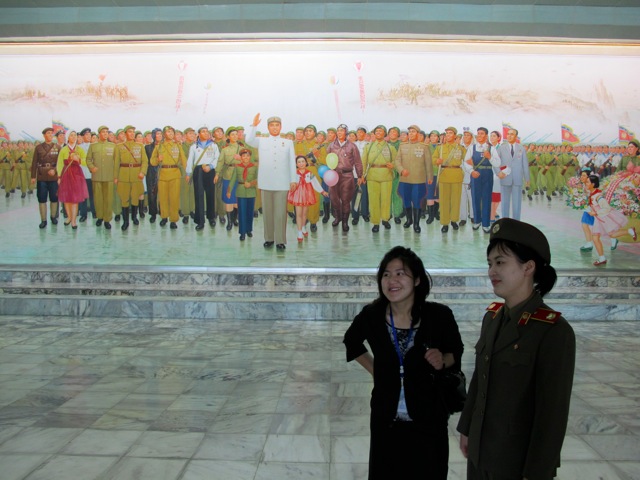
“We are not Crazy: Reflections on a Visit to North Korea”
Seo-Hyun Park, Government & Law
Allison Alexy, Anthropology & Sociology
Wednesday, Oct. 6th
12:20-1:25
Kirby 104
Lunch will be provided with generous sponsorship from the departments of Anthropology & Sociology and Government & Law, and the programs in Asian Studies and International Affairs.
** Living Fieldwork - Reflections on Anthropological Research **
A Panel Discussion with Lafayette's Resident Anthropologists
Wednesday, Sept. 29th, 12 noon to 1pm
Gendebien Room, Skillman Library
Pizza will be served.
This panel will discuss doing fieldwork about...
... the past (Susan Niles, A&S)
... memory (Andrea Smith, A&S)
... dance (Nandini Sikand, Film and Media Studies)
... place (Crystal Fortwangler, Environmental Studies)
... intimacy (Allison Alexy, A&S)
This panel discussion brings together the anthropologists on campus to talk through their experiences conducting ethnographic fieldwork. After brief presentations of their research projects and methodologies, they invite group discussion about fieldwork in the broadest sense.
Please join us! Lunch will be provided!
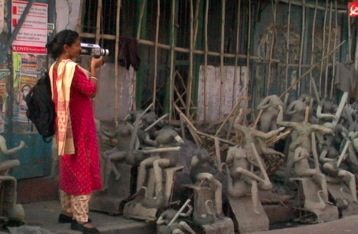
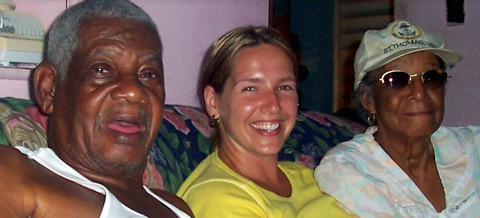
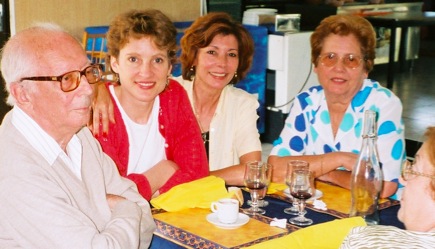
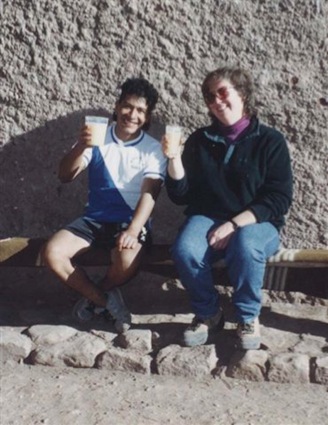

Malinowski's Diary
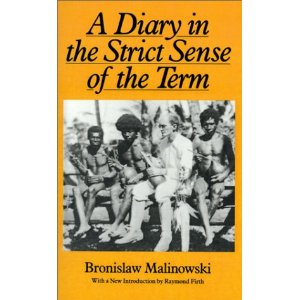
As we mentioned in class the revelations in Bronislav Malinowski’s diary contributed to the “crisis” anthropology experienced surrounding the intersection of methdologies, power, and representation in the 1970s and 80s.
From Clifford Geertz’s review of the book in the New York Review of Books (1967):
The significance of this [book] for anthropology's image of itself is shattering, especially since that image has been so self-congratulatory. Indeed, for a discipline which regards itself as nothing if not broad-minded, it is most unpleasant to discover that its archetypal fieldworker, rather than being a man of catholic sympathies and deep generosity, a man who his Oceanist contemporary R. R. Marett thought could find his way into the heart of the shiest savage, was instead a crabbed, self-preoccupied, hypochrondriacal narcissist, whose fellow-feeling for the people he lived with was limited in the extreme.
Here is a segment of the book, including the introduction and a relatively random section of the diary itself.
Plus Alpha: Rabinow
I decided to look up Berber since it was a term I am not familiar with other than the carpet and because I just assumed Moroccan's were called just that, Moroccan. I found out that the two are not synonymous and where it is Berber's are traditionally from and where they live today. They are mostly identified by language and Berber is mostly a spoken language with different dialects, not really a written language.
http://www.al-bab.com/arab/background/berber.htm
Stacey
I did some research on Paul Rabinow. I wanted to see how well known he is and what his interests are. I found out that he generally focuses his work around modernity especially in Morocco. He wants to understand the people and how their environment effects them. He is pretty well known and has over 10 pieces of text that he has written. The biggest thing he is known for is "anthropology of reason."
http://anthropology.berkeley.edu/rabinow.html
Mary
I was interested in researching more about the customs of Moroccans. I found that when Moroccans greet each other they take their time and converse about their families, friends, and other general topics. Handshakes are a customary part of the greeting process between moroccans. Family life is the most significant value for Moroccans and the elderly are highly respected and play a large role influencing the rest of the family.
http://www.kwintessential.co.uk/resources/global-etiquette/morocco-country-profile.html
Meagan
I looked up Baudelaire
Baudelaire was a French writer, particularly a poet, who was alive from April 9, 1821 to August 31, 1867. Baudelaire related to Edgar Allen Poe, and spent about 15 or 20 years translating Poes works into French.
Simone
I decided to look up what the quote "Tu le connais, lecteur, ce monstre délicat, —Hypocrite lecteur,—mon semblable,— mon frère!" mens and what the significance could be. This quote that appears on the title page of the ethnography generally means: “You know this dainty monster, too, it seems Hypocrite reader! You! My twin! My brother!” (this might not be 100% right because there are multiple translations). The quote comes from an introduction to a volume of poems by Charles Baudelaire titled "Les Fleurs Du Mal" (published in the mid 1857). The poem is entitled “to the reader.” I’m not entirely sure why Rabinow is quoting this poem as it is really dark and seems to be calling the reader a hypocrite who commits the same sins as a poet. If anyone else has more insight feel free to let me know.
http://fleursdumal.org/poem/099
Scott
The revolts Rabinow referred to were the May 1968 strikes in Paris. This was the largest Wildcat Strike (strike without authorization from unions) in history. The French economy was a at a standstill and the revolt almost terminated the Fifth French Republic led by Charles de Gaulle. Many students of the Sorbonne started the revolt protesting expulsions of several students. The strike quickly turned into a general one against modern consumer society and totalitarian, Stalinist like governments. The revolt quickly turned violent and guerrilla tactics were used. In June, de Gaulle dissolved the National Assembly and threatened to march troops into Paris. Police seizes the Sorbonne, and the revolt eventually ended.
Juliet
The author refers to a mosque on page 35. A mosque was also brought up in one of my other classes and I didn't know what it was then either....so I realized it is time to look it up.
A mosque is a place of worship for followers of Islam. It is a place for community worship and "friday prayer services." Originally, it was supposed to be on a sacred piece of ground, but now mosques vary is structure, with most being a roofed building with open space, sometimes with a minaret.
http://www.google.com/search?hl=en&defl=en&q=define:mosque&sa=X&ei=mIKRTPLAIcK78gbgyd2iBQ&ved=0CBUQkAE
http://www.answers.com/topic/mosque
***Now in writing the above description I realized I didn't know what a "minaret" was, so I looked that up too.
minaret |ˌminəˈret|
noun
a tall slender tower, typically part of a mosque, with a balcony from which a muezzin calls Muslims to prayer.
Liz
http://dictionary.reference.com/browse/ennui
Ennui: a feeling of weariness and discontent resulting from a lack of interest.
http://dictionary.reference.com/browse/modus+vivendi
Modus Vivendi: a temporary agreement between parties following the settlement of matters in a debate.
Michelle
I thought the comment about facial hair on the young men was interesting, and thought it would be cool to look into the appearance norms of men in Morocco. I don’t know how “reliable” this website is, but the information I found said Moroccan men are very “image conscious.” Anything that shows skin (i.e. flip flops, shorts, tank tops) is “indoor clothing” and not appropriate for outdoors. Hair is generally short and neat, and beards often have religious connotations associated with them; devout Muslims grow full beards.
http://maroc.costasur.com/en/hommes.html
Laura
"Phenomenology" - defined in the reading as "a movement in which each cultural figure finds its meaning not in what precedes it but in what follows: consciousness is drawn out of itself and ahead of itself in a process in which each step is abolished and retained in the following one" (6). However, I thought it would be interesting to research this topic further. In addition to the definition provided in the introduction, I found that phenomenology specifically "studies the structure of various types of experience ranging from perception, thought, memory, imagination, emotion, desire, and volition to bodily awareness, embodied action, and social activity, including linguistic activity." http://plato.stanford.edu/entries/phenomenology/#1
Allison
"The owl of Minerva flies at dusk."
Although I know that Minerva is the Roman goddess of wisdom that is based on the Greek goddess Athena, I was not sure what it meant that her owl 'flies at dusk.' Hegel's original saying is: "The owl of Minerva spreads its wings only with the falling of the dusk." Hegel meant that wisdom 'takes flight' only at the end of the day after all of the day's events have come to a close - essentially, humans come to full knowledge just a little bit too late. In the article, Rabinow probably means that had he more knowledge or experience beforehand, it would have gone more smoothly; however, now that his experience is complete, he has finally come to full understanding of the situation, although it is too late.
Geertz / Abu-Lughod: Plus Alpha
cockfighting while still illegal is practiced rather frequently, and is considered the equivalent to gambling on a slot machine, yet brings together the community where as gambling in western countries is much more anti social behavior, it is embedded in the culture of Bali in a way that it cannot be in western civilization.
Laura
"indubitable" - undoubtable, unquestionable - http://dictionary.reference.com/
Juliet
Desultorily
[des-uhl-tawr-ee, -tohr-ee]
–adjective
1.lacking in consistency, constancy, or visible order, disconnected; fitful: desultory conversation.
2.digressing from or unconnected with the main subject; random: a desultory remark.
sol·ip·sism
[sol-ip-siz-uhm]
–noun
1.Philosophy . the theory that only the self exists, or can be proved to exist.
2.extreme preoccupation with and indulgence of one's feelings, desires, etc.; egoistic self-absorption.
Juliet
After reading the description of the cockfights, I kept wanting to know what the spurs looked like.
This is the website. http://www.phototramp.com/Pages_Pictorials/Balinese_Cockfighting/balinese_cockfighting_03.htm
.

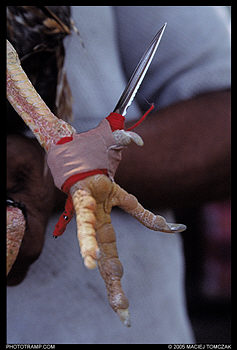
Tom
Notes on the Balinese Cockfight
Page 424- Dutch invasion of 1908
The 2nd of two invasions (the first in 1906) which destroyed the southern Bali kingdom of Badung and Tabanan, and weakened the kingdom of Klungkung. It allowed the Dutch to seal control over Bali in the short term.
Brittany
I didn't know anything about Bali or where it was located so I wanted to look that up. Bali is located in Indonesia. An overwhelming percentage of the people are Hindu. Bali is one of the wealthiest regions in Indonesia.
http://en.wikipedia.org/wiki/Bali
Emily
lacunae- a gap, missing space, a cavity
http://www.thefreedictionary.com/lacunae
Lauren
• Subject: Balinese Day of Silence (Njepi)
• Page: 420
• What I found: It is traditional for the Balinese Muslims to open their New Year in silence. The day before Njepi all the villages participate in an exorcism at the “meeting place of demons.” The make costumes called Ogoh-ogoh which represent evil spirits and display them at carnivals. They end up torching the Ogoh-ogoh to rid themselves of the evil spirits. The day of Njepi is the day when the world is expected to start anew and clean. The Balinese observe this day by abstaining from talking and any other activities deemed luxurious.
• Source: http://www.indo.com/culture/nyepi.html
Lauren
• Subject: Main components of the Bedouin Economy
• Page: 8
• What I Found: The primary way of life is called pastoral nomadism, a form of agriculture where animals are herded continuously in order to find fresh pastures for grazing. Herding to more arable land is necessary for the survival of the people and their animals. There exists a division of labor among the Bedouin, which is determined by the animals that are herded. Men have the responsibility of herding the larger animals and the women are responsible for taking care of the smaller animals. Lastly, Bedouin households are extremely sedentary and rely on outsiders to perform specialized work when needed.
• Source: http://www.everyculture.com/Africa-Middle-East/Bedouin-Economy.html
Rebecca
I was curious to know more about Jean Briggs; Abu Lughod only briefly mentions her interactions with the Eskimos. She has found particular interest in “…interpersonal (social and emotional) relationships in Inuit families and small groups, and Inuit language.” Other areas of her research include attachment, values like nonviolence, concern for others, and autonomy. I could not find, however, a relation to Abu Lughod’s reference to Briggs and her lack of defiance among the natives. http://www.mun.ca/anthro/faculty_staff/briggs.php
Suzanne
I looked up the word "Aesopian" since the only thing I could think of was Aesop's fables when I read it but I wasn't sure if that was what Geertz was referring to. Turns out that is indeed where the root of the word comes from however the meaning was deeper than I thought it would be. To quote Merriam Webster's online dictionary it can also mean, "conveying an innocent meaning to an outsider but a hidden meaning to a member of a conspiracy or underground movement
http://east.merriamwebster.com/dictionary/aesopian
Michelle
I really don’t know anything about history in general, or Bali’s history. So, I decided to look more into what Geertz mentions on page 424 about a Dutch invasion in 1908. Apparently, in April of 1908, the Dutch invaded Tabanan (an area in Bali), and many kingdoms within and surrounding this area fell to Dutch rule. Following the last battle that occurred, a “puputan,” which is a “suicidal fight to end,” took place, and the whole island of Bali fell to Dutch rule in that short amount of time. Bali was under Dutch rule until it was taken over by the Japanese during World War II.
http://www.travelchannel.com/Places_Trips/Destinations/Oceania/Indonesia/Bali/Historical_Background
Scott
Sarong
-A garmet similar to a kilt for men or long skirt for women that is popular in Southeast Asia, South Asia, Africa, the Arabian Peninsula, and Pacific islands. Sarongs can be made from various fabrics--cotton, wool, silk and more. Sarong is the generic English term for such a garment, but it has different names in the different lands it is worn.
Allison
I wanted to look up more information on cockfighting. Two gamecocks are forced to fight to the death, often times wearing sharp steel blades or gaffs, which are meant to severely harm the other gamecock. Typically, gambling occurs during the fight, although a large concern is the firearms, weapons, and illegal drugs that are also typically present. Although gamecocks do naturally get in fights in order to establish dominance within a group, these fights rarely result in death or serious injury. There are still states in which cockfighting is not illegal and is only a misdemeanor, including West Virginia, Mississippi, Kentucky, Alabama, Idaho, and Hawaii. It is still legal in the American Samoa, Guam, Puerto Rico, and the Virgin Islands.
http://www.hsus.org/hsus_field/animal_fighting_the_final_round/cockfighting_fact_sheet/
Mary
For I wanted to find out more about "The Day of Silence" (Njepi) and what it means to the Balinese people. I found that it is how the Balinese people begin their New Year, they open it with silence. The purpose of the day of silence is to make and keep the balance of nature. This day, also called Nyepi Day, falls on the day following the dark moon of the spring equinox.
http://www.indo.com/culture/nyepi.html
Mary
I was not sure where or what type of Lake, Lake Mariut was. When I looked it up I found that Lake Mariut is a salt lake, or rather brackish, with an area of about 250 square km in northern Egypt. It is separated from the Mediterranean Sea by the narrow isthmus on which the city of Alexandria was built. The lake shore is home to fisheries and saltworks. Some of the marshy areas around the lake have been reclaimed for new building as the city grows. The name derives from Mareotis, the name of the lake in ancient times. http://en.wikipedia.org/wiki/Lake_Mariut
Mead: Plus Alpha
I looked up the word "surreptitious." In the context of the ethnography, it means a sneaky, stealthy action.
http://dictionary.reference.com/browse/surreptitious
Laura
Matai -
"A matai title can be given to either men or women, although you will find far more men with titles than women. It is usually given to someone in acknowledgment for services that have been rendered. A family might give a title to a relation who has been able to support them through hard times or village might give a title to someone that has done something that has been of benefit to the village as a whole. However currently there appears to be a tendency to give a matai title to someone in order to receive favours in return, be they of a financial or other nature."
http://www.samoa.co.uk/matai.html
Emily
sonorous: deep sound, loud or full in sound
http://dictionary.reference.com/browse/sonorous
Bijal
I did not know why Mead kept using the term Don Juan. I learned that he was a fictional libertine that was known for seducing women. It is now a synonym for womanizer.
http://en.wikipedia.org/wiki/Don_Juan
Liz
Kava refers to both a plant of the Western pacific and a beverage that can be made from its roots. It is a non-addictive sedative that is used to relax and does not affect mental clarity. Its effects are commonly compared to the effects of alcohol because it causes effects within 20-30 minutes of consumption, which last for about two and a half hours but can be felt for up to eight hours.
http://en.wikipedia.org/wiki/Kava
Stacey
getting a better understanding of the Samoan people... There are well over 300 hundred different Samoan villages. Everything is shared amongst each other which does not allow anyone to get ahead in life. This then poses another question... I don't know if that's a good thing or not because then what is the initiative to be a go getter? There isn't one. Also, can these traditions be broken at all? For example, the clothes they wear and they crafts they make?
I don't know if this helps but reading more on these people only made me ask more questions.
http://www.samoa.southpacific.org/samoa/villages.html
Tom
Kokomo-
Seeing the author write about Kokomo made me ask the question, is Kokomo, Indiana what the Beach Boys were talking about? It was actually not that easy to find but the Kokomo that the Beach Boys spoke of was in Montego Bay (which makes a lot more sense). According to cityofkokomo.org, Kokomo, Indiana is known as "the city of firsts" thanks to its automotive history. I think for now though, I'll plan a trip to better known Montego Bay Kokomo.
Mary
I was not sure what the Siva parties were that children meet at. I found out that the the Siva is the traditional Samoan dance. The female siva incorporated gentle movements with the hands and feel, going to the rhythm of the music.The traditional Samoan dance is the siva. The female siva incorporates gentle movements of the hands and feet in time to music. Dancing is viewed as unique to the Samoan culture.
http://en.wikipedia.org/wiki/Culture_of_Samoa
Scott
Samoa is actually a chain of 16 islands, west of Australia, referred to today as the Samoan Islands. At the time of Mead's writing all the islands were colonized by western powers, particularly, Germany, Great Britain, and the United States. Today, 10 of the islands are independent, but only 4 are inhabited. The 6 eastern islands (American Samoa) are still controlled by the United States.
Hannah
There was much controversy regarding the portion on sexual practices, girls that Mead had interviewed had come forward and said that they were "joking" and their culture was misrepresented in Coming of Age in Samoa.
Suzanne
Definition Taro Root
http://www.essortment.com/all/taroroottubers_relt.htm
I wanted to look up Taro since it was mentioned in the article because I have had it in bubble tea before and thought it was delicious. I found that the reason it tastes similar to a coconut is because they are related. It must have its skin removed before cooking since the skin is actually toxic but it is a great source of fiber and is easily digestible as well as very versatile.
Michelle
Plus Alpha Project – The Ifoga
Mead briefly described an Ifoga as “ceremonial humiliation before some on whose pardon is asked” (74). I decided to research this further, and found that it is not just for adultery, the situation in which Mead described it, but also for when physical harm is done from a member of one family to a different family, and that this concept also occurs in American Samoan communities. Also known at the “apology speech,” this public trial often brings a sense of unity to the “criminal’s” family, and is said to be a way to avoid court action and legal processes. It involves gift giving and delegation among a committee, and if the apology is accepted, the families eat a meal together.
http://www.jstor.org/stable/pdfplus/539779.pdf?acceptTC=true
http://heinonline.org/HOL/LandingPage?collection=journals&handle=hein.journals/gwilr10&div=11&id=&page=
Rebecca
"Where the parents of lower rank complacently ignore their daughers' experiements, the high chief guards his daughter's virginity as he guards the honour of his name, his precedence in the kava ceremony or another prerogative of his high degree" (70). I looked up the kava ceremony. According to http://www.janeresture.com/oceania_kava/index.htm (I googled kava ceremony, as I had no idea what specific online resources to search through), the kava is a drink. "Kava" literally translates to "bitter," and it appears to be an intoxicating brew. According to Wikipedia, the kava is served at ceremonies and is first given to the highest cheif of the visiting party and then served in order based on the subsequent ranks of the other guests. The ceremony is also "highly ritualized," and the drink is served in half of a coconut shell.
Malonowski: Plus Alpha
Simone
For my alpha plus I decided to research what Argonauts means. I found that the word comes from Greek mythology where it refers to a group of heroes who went on a bunch of adventures but the most important one was when they sailed to retrieve the Golden Fleece (a mythological creature that looks like a ram with wings). Today Argonaut can also refer to an adventurer who is engaged in a quest (often by sea).
Gabriela
As for the "plus alpha" I researched Bronislaw Malinowski. I am pleased to know that he is from Poland, which is also my country of origin, and that he actually attended a university in Cracow where he received a Ph.D. (surprisingly in physical sciences). He is the founder of participant observation, an idea which he demonstrated throughout the reading by forming a close relationship with the people and their environment. He also cofunded the Polish Institute of Arts and Sciences of America, and established the London School of Economics as one of Britain's greatest centers of anthropology.
Meagan
I chose to look up "Professor Seligman" from page 14:
Seligman originally studied medicine, but was interested in
anthropology and did field work in New Guinea, as well as Melanesia
and what is now Sri Lanka. This in-depth field work later influenced
Malinowski. He also worked with his wife, and used Freudian ideas.
He was born in 1873, and died in 1940.
Brittany
I looked up "argonauts" because I have never heard the term before. The name comes from Greek mythology. The argonauts are a band of heroes led by Jason in a quest to find the Golden Fleece, the coat of a golden winged ram. Their name comes from the name of the ship they traveled on, Argo. It is interesting that Malinowski used this name to describe the people in Melanesian New Guinea.
Juliet
I don't know if this counts as a plus alpha, but I thought I would tell you what I looked up anyway.
On page 22 the author writes about a point being the real "Gordian Knot" in the study. I had never heard this saying before so I looked it up.
(My Summarized Version)
According to an ancient Greek legend, one day a poor peasant named Gordius arrived in the village of Phrygia with an Ox Cart. He fulfilled the prophecy that the future king would come into town riding on a wagon, and was thus made the king. Gordius, in gratitude, dedicated his ox cart to Zeus and tied it up with a very intricate knot. Another Oracle said that whoever was able to untie this knot would become ruler of all of Asia. No one was able to solve the mystery that was the knot and untie it, until, Alexander the Great, who cut the knot with his sword. The Gordian Knot is now used as a metaphor for an intractable problem, solved by a bold stroke, like "cutting the Gordian knot."
Websites used for info:
http://www.maa.org/devlin/devlin_9_01.html
http://en.wikipedia.org/wiki/Gordian_Knot
Hannah
when looking up the argonauts of the western pacific, i noticed that it was one of three in a series, and that one was based solely on the sexual practices of these people. which made me wonder what was so fascinating about their sexual practices, that a book was necessary. When doing a small bit of research i learned that malinowski looked at relationships, but also that the natives were known for their use of a wide array of sexual positions, and the birth of the term, missionary position.
Ali
Mwali value is determined based on size, color, and how well they are polished or finished. The shells become more valuable with age.
Also, it is a basic rule is that someone can't keep a valuable mwali indefinitely or take it out of the circulation unless someone personally owns the mwali.
Liz
In the paper, it said that tribes exchange different goods, one of which was sago (page 1). Sago is a type of starch that is a major staple food for the people of New Guinea. It is cooked and eaten in a variety of different forms (e.g. as a steamed pudding or as a pancake). It is nearly a pure carbohydrate and has very little protein, vitamins or minerals but it is eaten because it is grown in areas that are unsuited for other forms of agriculture.
Danielle
The Motu are a group who live on the the Southern Coast of Papua New Guinea. Their language is similar to the rest of the Austronesian languages of New Guinea. They celebrate Christian holidays and their houses are in lines and are connected by walkways/ The Motu are monogamous but in precolonial times men could have several wives. Marriages used to be arranged but today they are not. The traditional foods are fish, yams and bananas and their most popular sport is rugby.
Tom
Pg 7 Omarakana
Apparently I was not the only one stumped when I read this word. Even Google thought I typed in the wrong thing. Omarakana, better known as the Trobriand Islands, is located off the coast of Northern Australia. For my interest, it was discovered by the French in 1793 (of course it was already inhabited). In 1943 Troops landed on the island as part of Operation Cartwheel and in the 1970's the natives to the islands formed an anti-colonial association and political movement.
Mary
I was interested in finding out more information about the Trobriand people and their marriage customs. I wanted to look up their marriage customs to see if they related to the essentials of the Kula. I found the Kula transactions done between partners to represent a bond similar to the commitment of a marriage. I ended up finding out that the Trobriand people do not have a traditional marriage ceremony. Once the couple is married they eat together for a year, and then go their separate ways. The initial meal together officially recognizes the couple as married. I was surprised by these findings because I thought the marriage between the Trobriand people would be more of a symbolic exchange, similar to the Kula.
Blogging Ethnographic Research
Susanna’s Project --
Abstract
This dissertation research examines how ethnic Fulbe people in rural Guinea and their relatives abroad negotiate the moral ambiguities of making, sending, and spending remittance money. In particular, I will explore how people participating in a transnational remittance economy cope with the uncertainties and tensions involved in constructing village mosques with money rumored to have controversial or “unclean” origins. Changing understandings of Islam and widespread reports of migrants’ involvement in selling and smuggling drugs, cigarettes, and alcohol have led to escalating moral contestations between Guinean Fulbe villagers and their relatives who send “unclean” money home. Yet in the face of ongoing economic hardship and political uncertainty, particularly since the death of long-time president and dictator Lansana Conté in December 2008, Guineans rely on remittances now more than ever. What happens when migrant remittances that provide people with economic security also become a source of moral insecurity? I approach this question through the ethnographic lens offered by remittance-funded mosque construction in rural Guinea. Drawing on anthropological theories of money and informal economies, Islamic religious production, and transnational migration, my research investigates how remittances used in Fulbe village mosques become the focus of social, moral, and religious debates over “clean” and “unclean” money.
Taking mosques as situated foci within the transnational remittance economies of Guinean Fulbe communities, this study will integrate village-based ethnographic research with recent anthropological approaches to transnational and multi-sited research. Over the course of eighteen months, I will conduct fieldwork 1) in three different sub-prefectural villages in Guinea’s Fulbe-dominated Fouta Djallon highlands region, with periodic visits to Conakry, Guinea’s capital (July 2009-June 2010); and 2) in Dakar, Senegal, a city that figures both as a destination for Guinean migrant wage earners and as a transit hub for Guineans seeking to continue, often via clandestine routes, to Europe, North Africa, and North America (July-December 2010). Through participation in women’s religious study groups and a variety of other research methods including semi-structured interviews, oral histories, migration narratives, genealogical interviews, and household surveys, I will examine how disputes over mosque funding and construction reflect social, generational, economic, political, and ideological tensions among Guinean Fulbe at home and abroad.
If you follow the above link, you can click to the next post at the bottom of the page (“newer post”).
This is Your Brain on Screens

Despite my own use of technology in and out of the classroom, I have a strong restriction against students using laptops in class. At the beginning of the semester, I want to explain my reasoning behind this policy.
I believe that it is incredibly hard not to multi-task when you are sitting in front of a screen, be it a tv or computer screen. And, although multi-tasking might feel good to some people at some moments, every piece of evidence I have ever read or experienced convinces me of the opposite. Multi-tasking hinders listening, thinking, engagement, and learning, all of which I’m trying to maximize in the classroom.
For more on this topic, check out the New York Times’ recent series about the dangers of texting while driving and the benefits of unplugging from technology.